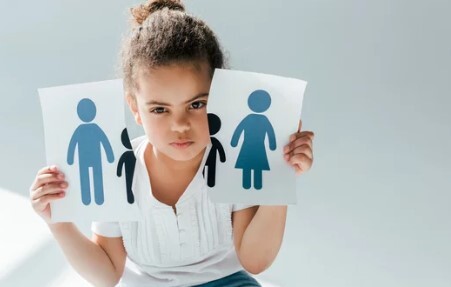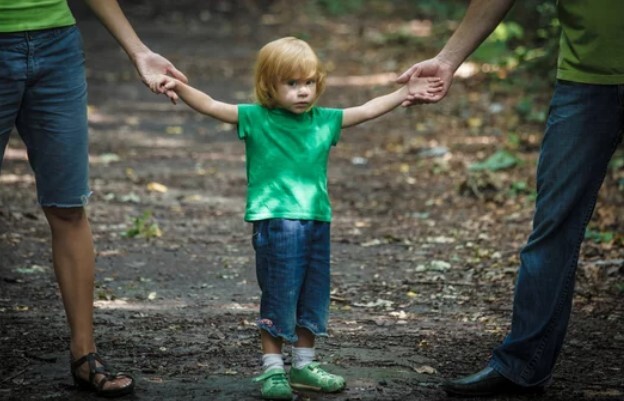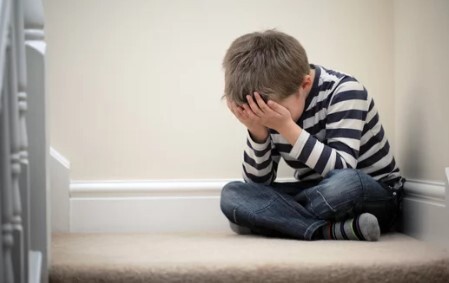How to Talk to Your Child After Visiting With the Other Parent
Whenever you’re sharing custody and working on co-parenting with your ex, particularly in a high-conflict situation, your kids might come home with stories, complaints and feelings that get your back up and make you want to jump to their defense and your own if they’re coming back with comments made about you. How do you handle those conversations?
Remember that your children aren’t players in your divorce. It’s important to support their relationship with the other parent while at the same time creating a safe environment where they can express their feelings to you openly.
It’s a tricky situation. And the ones in the trickiest position are the children. At the end of the day they’re processing the information that they’re receiving and the experiences they are having. In this article, we’ll talk about listening without reacting, managing your own emotions and modelling healthy communication for them.
For more on helping children express themselves during tough co-parenting situations, check out Silent No More: Empowering Kids’ Voices in High Conflict Divorces.
Understanding Your Child’s Behavior After Visitation: Listening Without Reacting

Just as you’re coping with a flurry of wide-ranging emotions throughout the divorce process and afterward, so are your children, only for them, it can feel even more confusing and out of their control. They are buffeted by your winds, be they a breeze or a torrential storm, so to speak.
Through it all, they are trying to process complex emotions, often without tools or accurate language to express them. They might not even be consciously aware of their feelings, and instead manifest them in uncharacteristic behavior, such as tantrums, defiance or by withdrawing entirely.
When it comes to what they tell you after their custodial time with their other parent, they may share comments the other parent made about you that are upsetting, stories about your marriage, blame, or general overall anger about the new reality of the divorce. It’s important to be mindful when this happens: rather than either gaslighting them and brushing it off, or jumping to defend yourself or turn the blame on their other parent, acknowledge their confusion and feelings and let them feel that it is safe to share with you.
Helping Your Child Reconnect After: Handling Clinginess and Emotional Reset
One parent shared: “He becomes extremely clingy, cannot let me out of sight, even for a moment after visits. It’s like he needs to re-anchor himself.” This underscores how common such behavioral shifts can be and how critical empathy is in your response.
Validating their feelings, listening without jumping to give advice or reacting with how it makes you feel is the best way to give them the security they need, to know that they can come to you. After visits can leave children emotionally dysregulated. To help them settle in, establish a calming “welcome-home” ritual—like a quiet snack, a short walk, or a favorite shared activity. These gentle routines help them transition emotionally and feel steady again. At the end of the day, whatever is happening, it’s important to keep those lines of communication open with your child so that you can have insight into what is happening for them and what they are experiencing.
Preparing for Transition Days: How to Manage Your Own Emotions

Creating that safe environment for your children will take some work on your part. You may notice that on the “Transition Days”, the days they come back home to you after their time with their other parent, they return home in emotionally heightened states. This is not uncommon. They may have things they want to share with you and may be worried about sharing, or they may have had some upsetting experiences and are struggling to process their emotions. You need to be the calm, secure safe for them to return home to.
That may mean mentally and emotionally preparing yourself before they come home to be ready to listen without reacting, and reminding yourself that this is not about you but about them and what they are experiencing right now. Getting yourself into a position of expecting to hear things you won’t like will help you avoid the reactivity it provokes. You may not know what’s going to come out of their mouths, but you will expect it. When you’re expecting it, your body is prepared, your mind is prepared. Instead of reacting, you can respond.
So, you can say things to yourself like: “Today is a transition day. I’m probably going to hear things that I don’t know or don’t like, and it may trigger me or make me feel defensive.” Practices like that, or calling someone in your support system to help you self-regulate, before they come home will help you center yourself to remain calm and supportive for them.
Of course, it will be hard to hear a lot of the things they tell you, but it’s important to remember that it’s not about you, it’s about your child and the support they need in that moment. Afterward, you can turn to your support system to process what you’ve heard and how it makes you feel.
Modeling Healthy Communication and Teaching Kids Boundaries

It’s crucial to model calm and balanced responses to what your children tell you rather than defending yourself or blaming the other parent. Falling into those patterns of trying to prove yourself to your child over unpleasant comments or lies the other parent might have said to them only perpetuates the drama and ongoing saga of who said what, and it ropes your child right into it by making them not only the messenger but also the punching bag you react off of.
Avoid making your child the messenger between parents, as this places undue emotional burden. Instead, reassure them that adult matters stay between adults and emphasize that both parents love them, even when they disagree.
You may feel like you need to counter what they tell you, or “set them straight” on the “truth” of the matter, but what that does is drag them into topics and conversations that they don’t necessarily need to be a part of. What does it matter if you were the one to initiate the divorce or you did such and such? Remember that actions speak louder than words: model the truth you want them to see.
The contrast will be stark for them between a parent that is bad mouthing their other parent and the other parent who is calm, makes no accusations and casts no blame and instead is the loving sanctuary in the storm for them. You want to be the parent they can talk to for the long term.
You can say things like:
- “Do you want to talk about that more? I’m here to listen.”
- “Thank you for sharing that with me. I believe you.”
- “This must be hard for you, I’m sorry.”
And that doesn’t mean you have to leave them feeling disempowered in these situations either. You can use this time to help them build their own resources and tools to understand what is okay and what is not, to build boundaries and provide skills for conflict resolution. Telling them things like: “These are some strategies that I use in situations like this,” or “This is how I’ve learned to deal with something similar,” can also help them feel empowered and supported, but it must be delivered in a neutral, unemotional approach, and not as “This is what I do with your father/mother” or “You tell your father/mother this.” Give them strategies, not vindictive weapons to use on your behalf.
Building Emotional Resilience in Children After Divorce
You can’t change the other parent but you can help them turn their focus onto themselves, what they can learn about themselves and others through this. This means they are learning life skills like building resilience, navigating differences, and dealing with uncomfortable situations and feelings early in life. Empowering them and reminding them they have a capacity to express themselves and maybe even stand their ground is a formidable skill to learn at any time in their lives.
Blending empathy and active listening with practical strategies for healthy communication are the best ways for you to support your children and navigate those tough conversations when they come home from their time with the other parent.
At the end of the day, creating a supportive and safe environment for your children when they return home from their visits with the other parent is more about validating their feelings than focusing in on the details. Active listening and empathy without an emotional reaction on your part will help them navigate the challenges they face balancing their lives between the two parent households with resilience and confidence. You don’t have to resolve every comment or story for them, rather the important thing is to equip them with skills to handle conflict and complex situations with grace and courage.
For older children, consider using a simple token economy system: reward positive behavior with tokens that can be exchanged for small privileges. Over time, this structure encourages stability and emotional regulation As their parent, you are their guide on this journey. Ensure that they know they can turn to you and receive love, support and empathy.
If you’re concerned about how to best navigate these conversations with your children when they come back from their time with their other parent, the Divorce Directory provides a wealth of resources for you to turn to, including Anger Management and High Conflict Specialists. Take the Self Assessment Quiz to clarify your priorities and get a free Strategy Session with one of our Divorce Specialists.
Disclaimer:
The information provided in this article is intended for general informational purposes only and is not a substitute for professional advice, diagnosis, or treatment. As a certified life coach, I aim to support and guide individuals in their personal growth and development. The content of this article should not be used as the sole basis for making decisions regarding your well-being. Always consult with a qualified professional before making any significant changes to your life or treatment plan.





